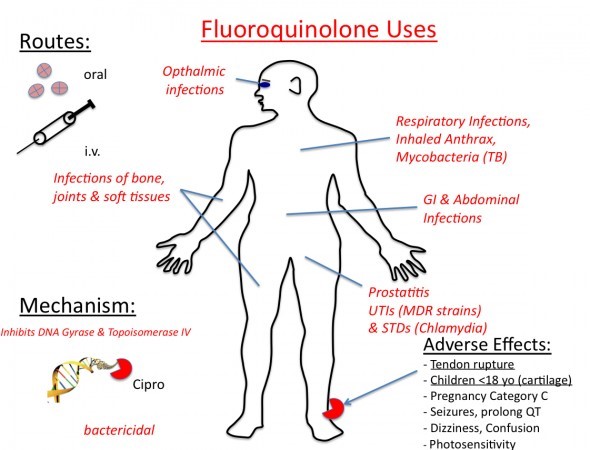A nurse is assisting with developing a discharge plan for a client who has a new diagnosis of diabetes mellitus. The client is independent and lives alone. Which of the following interventions should the nurse plan to include?
Provide the client with 1 week's supply of insulin syringes
Arrange for a home health nurse to visit the client daily
Notify the family of the client's health status
Refer the client to a diabetic support group.
The Correct Answer is B
Nursing Test Bank
Naxlex Comprehensive Predictor Exams
Related Questions
Correct Answer is C
Explanation
Ciprofloxacin is an antibiotic commonly prescribed for the treatment of various bacterial infections. It belongs to a class of medications known as fluoroquinolones. One potential side effect of ciprofloxacin is increased sensitivity to sunlight, which can lead to a higher risk of sunburn. Therefore, it is important for the client to take precautions, such as using sunscreen, wearing protective clothing, and avoiding excessive sun exposure while taking this medication.
"Take an antacid if the medication causes gastrointestinal upset": Ciprofloxacin can be taken with or without food, but it should not be taken with antacids, calcium supplements, or other products containing aluminum, magnesium, or calcium, as they can interfere with the absorption of the medication. If gastrointestinal upset occurs, it is generally recommended to take the medication with food to minimize this side effect.
"Restrict your daily fluid intake while taking this medication": There is no need to restrict fluid intake while taking ciprofloxacin unless specifically instructed by the healthcare provider.
Adequate hydration is important to maintain overall health and prevent potential complications.
"Expect to experience diarrhea while taking this medication": Diarrhea can be a potential side effect of ciprofloxacin, but it is not a universal experience for all individuals taking the medication. It is more appropriate to inform the client about the potential side effects of ciprofloxacin, including gastrointestinal upset, and to encourage them to report any significant or persistent symptoms to their healthcare provider

Correct Answer is B
Explanation
The charge nurse should explain to the assistive personnel (AP) that one of the responsibilities of a licensed practical nurse (LPN) is providing direct client care. LPNs work under the supervision of registered nurses (RNs) and are trained to deliver basic nursing care to clients. This includes tasks such as administering medications, monitoring vital signs, dressing wounds, assisting with activities of daily living (ADLs), and reporting any changes in the client's condition to the RN.
The other options are not typically within the scope of practice for an LPN:
a. Coordinating client care: The coordination of client care is primarily the responsibility of the RN. While LPNs may contribute to the coordination of care by providing input and collaborating with the healthcare team, the overall coordination is usually managed by the RN.
c. Assessing a client's health status: Assessing a client's health status is a role primarily performed by RNs. LPNs may gather data and contribute to the assessment process, but the comprehensive assessment and interpretation of data is typically the responsibility of the RN.
d. Identifying specific client health problems: Identifying specific client health problems and formulating nursing diagnoses is part of the RN's role. LPNs may assist in collecting data and providing input, but the identification and formulation of nursing diagnoses are within the scope of practice of the RN.
Whether you are a student looking to ace your exams or a practicing nurse seeking to enhance your expertise , our nursing education contents will empower you with the confidence and competence to make a difference in the lives of patients and become a respected leader in the healthcare field.
Visit Naxlex, invest in your future and unlock endless possibilities with our unparalleled nursing education contents today
Report Wrong Answer on the Current Question
Do you disagree with the answer? If yes, what is your expected answer? Explain.
Kindly be descriptive with the issue you are facing.
